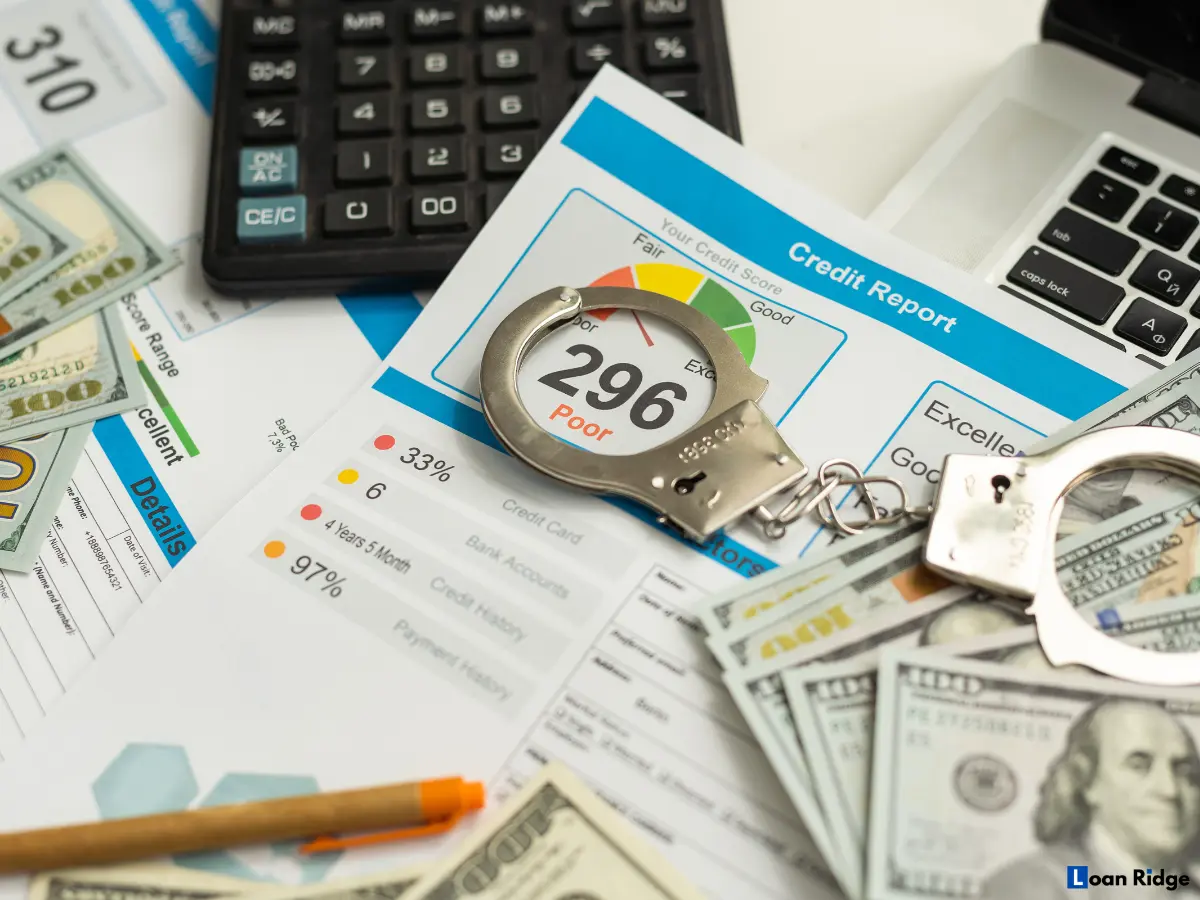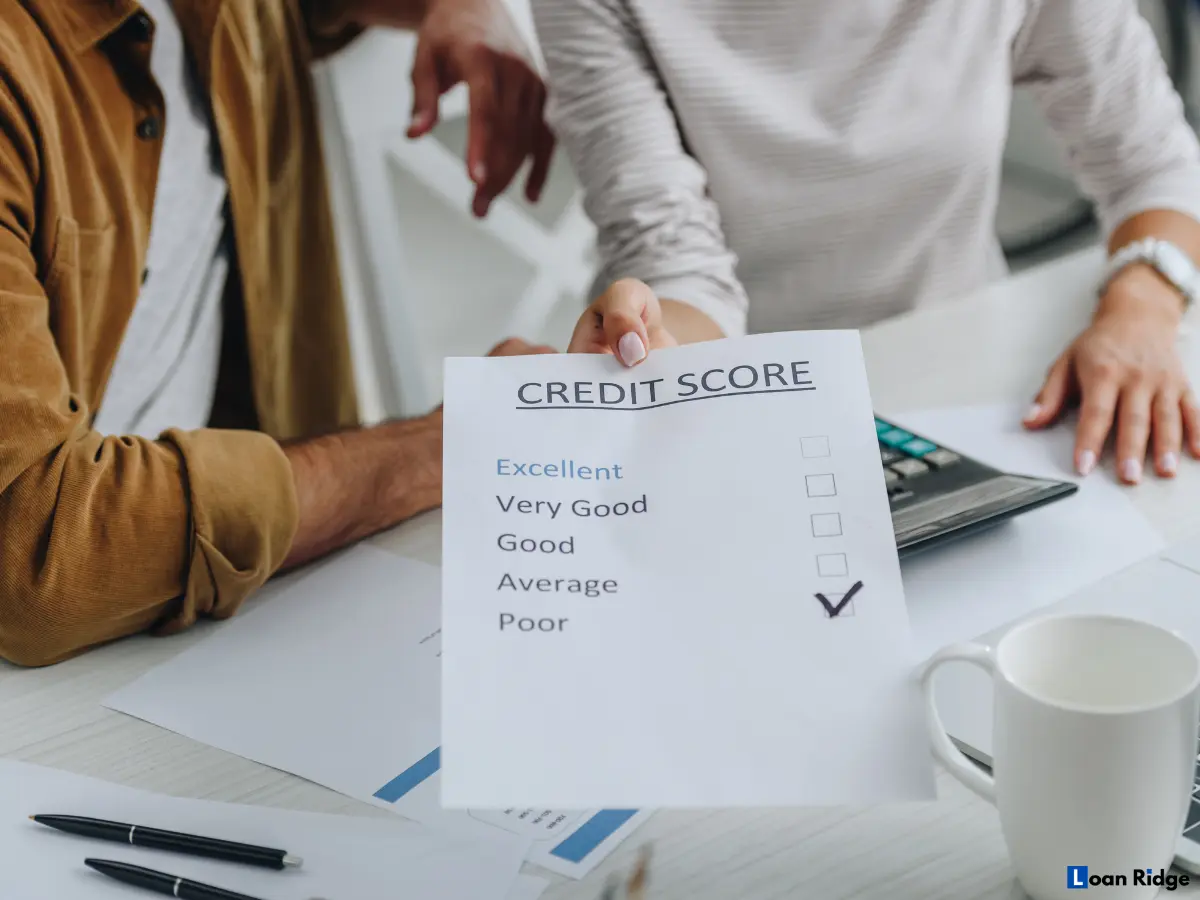Financially, facing the legal consequences of the law can be disastrous, with individuals struggling to make ends meet to cover court fees and other fines or expenses. However, in bad credit cases, pursuing financial help can feel impossible. Bad credit loans, nevertheless, might be a potential answer to help individuals facing legal consequences get some much-needed financial support.
In this section, we will examine some of the possible benefits and drawbacks of bad credit loans in a situation involving individuals facing legal consequences. We will discuss how bad credit can affect one’s legal matters, as well as what bad credit loans are and how they work compared to regular loans.
When someone is facing legal consequences, a bad credit score could be the furthest thing from their minds. However, bad credit will catch up on one in the worst possible ways and can impact legal matters, worsening an already horrible situation.
One of the most severe effects of bad credit is the inability to hire an attorney. Most attorneys want either an upfront payment or a retainer fee, both highly difficult for someone with poor credit. Without this, many find themselves with little to no decent representation when it comes to any legal issue, sometimes at the mercy of whatever the courts see fit to happen.
Bad credit can even lead to higher fines or penalties from a court case. For example, if there is a need for restitution or a settlement, bad credit limits one’s capacity for timely or full payment. This may further raise additional fees or collection efforts, increasing the financial burden arising from the legal consequence.
When a person is involved in a legal ordeal, it has to be clear that his credit score can impact his legal situation in many ways. Remember that improving his credit score or finding other alternative financial solutions will help minimize the negative impact of bad credit on his legal situation.

Bad credit loans are a type of loan intended for people with poor credit scores. These loans involve collateral, such as a car or property, or can be non-secured but at higher interest rates than regular loans.
Unlike bank or other conventional loans, which require a decent credit score to access, bad credit loans are offered for low-credit individuals because lenders take higher risks. Due to these higher risks, a bad credit loan requires increased fees, interest rates, and stricter conditions of repayment.
Some bad credit loans are superior to others, and it’s vital to pay much attention to the terms and conditions before accepting and signing any loan contract. Others may try to rip you off by overcharging you too many fees or not disclosing hidden charges.
Before applying for bad credit loans, borrowers should research options well and compare rates and fees from several lenders. It is also important that the lender be responsible and transparent in their lending practices.
Bad credit loans come in handy for people with legal consequences, though traditional loans are limited. It is worth weighing the pros and cons of bad credit loans against the benefits they may provide, carefully considering the terms and conditions of each loan before making a decision.

Bad credit loans are perfect for individuals facing legal situations, but one needs to weigh the pros and cons associated with these.
Pros:
| Advantage | Explanation |
|---|---|
| Access to funds | For someone with bad credit, finding cash through a regular loan would be hard; bad credit loans are specifically meant for people with bad credit scores |
| Flexible requirements | Bad credit loans do not have as strict requirements as other loans, so they can be extended to people who are experiencing financial constraints because of legal implications. |
| Quick approval and funding | Most bad credit loans promise quick approval and funding, which is very helpful in case someone needs money to handle a legal situation. |
Cons:
| Disadvantage | Explanation |
|---|---|
| High interest rates | Most bad credit loans have higher interest rates than traditional loans; this may mean a substantial long-term cost. |
| Short repayment terms | Many loans for bad credit require one to pay back within weeks or months. This is quite unrealistic for someone caught in endless, expensive legal battles. |
| Potential impact on credit score | Defaulting on a bad credit loan will further negatively affect an individual’s credit rating and limit future borrowing options. |
Prior to deciding to obtain a bad credit loan, clients should exercise due care regarding their financial status and weigh the pros and cons.
Aside from resorting to a bad credit loan, alternative financial solutions may be more advisable for those on trial. These may have better terms with fewer setbacks compared to bad credit loans.
Legal Aid Organizations: The expertise of a legal aid organization can be sought out. They can support the proceedings and try to provide financial resources or a payment plan if available and deemed necessary.
| Pros | Cons |
|---|---|
| Free or low-cost assistance | May have limited resources or funding |
| Expert knowledge of the legal system | May have eligibility requirements or long wait times |
Payment Plans: This process includes collaboration with a legal system or organization to attain a payment plan. This way, individuals have an opportunity to pay fines and fees gradually instead of borrowing money from somewhere.
| Pros | Cons |
|---|---|
| No interest rates or fees | May require a significant amount of time to repay debts |
| May be able to negotiate a lower amount owed | May not be available for all types of legal consequences |
Government assistance programs: Lastly, individuals may have access to government money assistance. This will be through housing, food, or health programs, depending on the condition.
| Pros | Cons |
|---|---|
| Free or reduced-cost resources | May have eligibility requirements or long wait times |
| May provide long-term support beyond legal consequences | May not provide immediate financial assistance |
These may be weighed against some undesirable consequences of legal action against one and are alternatives to decide the most appropriate action. Each action has pros and cons, which should be considered before acting on them.

Having decided that a bad credit loan is what works best for whatever situation you are facing, there are specific steps to take in order for your lending experience to be a successful one. Here are some key steps to consider:
If the above steps are followed, they will go a long way toward making sure that your bad credit loan experience is successful and debt-free.

In conclusion, bad credit loans can help an individual get out of legal trouble that requires financial aid. However, an individual must weigh the pros and cons of using this type of loan and seek other readily available means before making a decision.
Remember that a bad credit history may impact many components of the court process and that the outcome should be documented. Bad credit loans are an option, but also consider seeking an advice organization that provides legal aid, offers a payment plan, or uses government assistance programs.
For those who determine that a bad credit loan is the right option, several steps must be taken to ensure the borrowing experience is successful. These steps include finding reputable lenders, understanding loan terms, and managing repayments.
Overall, considering the various alternatives that exist and the steps that need to be taken to make those various choices, one can quite reasonably maneuver his financial situation and the resulting legal impact. The point is that every effort that financial responsibility may require will be worth making for the best result.
If you’re interested in learning more about bad credit loans, get in touch with our expert team here at Loan Ridge. We’re here to help you!